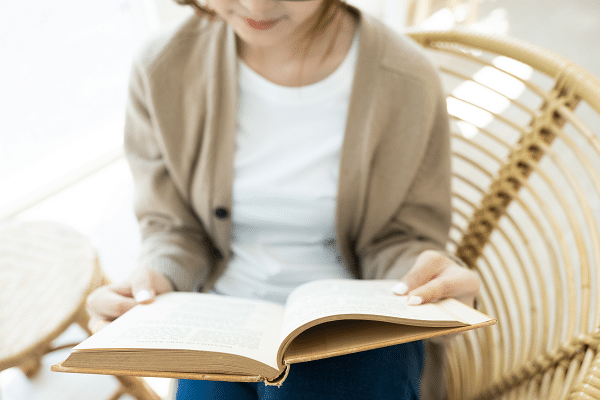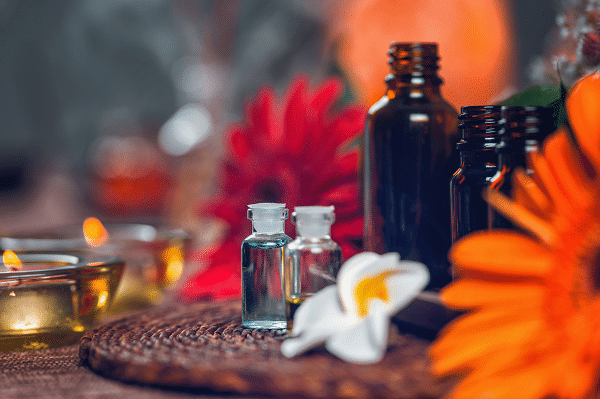Ensuring a quality night’s sleep requires more than just hopping into bed and switching off the lights. The activities one engages in before bed can significantly influence sleep quality and overall well-being. Establishing a calming pre-bedtime routine can help signal the body that it’s time to wind down and prepare for sleep. This blog post will guide readers through some of the most effective strategies for creating a conducive sleep environment, such as reducing blue light exposure, engaging in gentle stretches, and practicing mindfulness.
Reduce Blue Light Exposure

Electronic devices, such as smartphones, tablets, and computers, emit blue light that can disrupt the body’s natural sleep-wake cycle. This type of light tricks the body into thinking it’s daytime, delaying the release of melatonin, a hormone that regulates sleep. Minimizing exposure to blue light in the evening can help maintain a healthy sleep schedule.
There are numerous ways to manage this exposure. One method is to use blue light blocking glasses when using electronic devices in the evening. These glasses are designed to filter out the blue light and can be a useful tool for those who need to use devices in the hours leading up to bedtime. Another option is to install apps or use device settings that adjust the screen to warmer light tones as the sun sets. A practical yet beneficial choice is to establish a tech-free time about an hour before sleep, allowing the body to naturally prepare for rest.
Stretch

Incorporating a gentle stretching routine into a pre-bedtime ritual can yield numerous benefits. Not only does it improve flexibility, but it can also aid in stress reduction and muscle relaxation. When the body is relaxed, it can transition into sleep more comfortably.
Starting with simple, relaxing stretches can make a significant difference. Neck rolls, gentle forward bends, or slow leg stretches can help release tension from the body. The key is to focus on slow, controlled movements and maintain a relaxed breathing pattern throughout. This routine not only prepares the body physically for sleep but also helps to calm the mind by offering a moment to slow down and disconnect from the day’s stresses.
Meditation And Mindfulness

Practicing meditation and mindfulness before bed can prove beneficial for sleep quality. These practices help to calm the mind, reduce stress, and create an overall sense of relaxation. A quiet mind is less likely to be disturbed by racing thoughts or worries that can often delay sleep onset.
Beginning with simple mindfulness exercises can ease the transition into sleep. One effective method is a body scan meditation, where attention is focused sequentially on different parts of the body, acknowledging sensations without judgement. This not only promotes a state of relaxation but also fosters a deep connection with the body. Alternatively, guided meditations specifically designed for sleep can be accessed through various online platforms and can be incorporated into a pre-bedtime routine.
Read A Book

Engaging in a relaxing activity, such as reading a book before bed can help transition the mind away from the stresses of the day. By immersing oneself in a different world or learning something new, reading offers a form of escapism that can soothe the mind and prepare it for sleep.
Incorporating reading into a pre-bedtime routine can be as simple as setting aside a specific amount of time for this activity. It’s advisable to choose books that promote relaxation or positivity, as opposed to tense thrillers or complex subject matters that may stimulate the mind excessively. Reading physical books or using an e-reader with a warm light setting can help prevent exposure to sleep-disrupting blue light.
Avoid Alcohol

While some believe that alcohol can aid in falling asleep, it can actually disrupt sleep patterns and decrease the quality of sleep. Alcohol can affect the body’s natural production of melatonin, disrupt the REM sleep cycle, and lead to a less restful night’s sleep.
Substituting alcohol with healthier alternatives for winding down before bed is advisable. Herbal teas, such as chamomile or peppermint, are known for their soothing properties and can be a part of a calming pre-bedtime routine. Another relaxing practice is taking a warm bath, which can help the body reach an optimal temperature for sleep. It’s always beneficial to experiment with different strategies to find what suits one’s needs best.
Try Aromatherapy

Aromatherapy, the use of natural oils extracted from plants to promote health and wellbeing, can be an effective tool in preparing for a restful night’s sleep. Specific essential oils, like lavender and chamomile, have been shown to promote relaxation and improve sleep quality.
Implementing aromatherapy into a bedtime routine is simple and enjoyable. Diffusers are a popular way to disperse the scent throughout a room, creating a calming environment. Alternatively, pillow sprays infused with essential oils can be used just before bed, enveloping the sleeper in a soothing scent. Always remember to use essential oils safely, and in a manner that respects individual sensitivities or allergies.
Listen To Relaxing Music Or White Noise

Calming sounds can have a profound impact on sleep readiness. Soft, relaxing music or the steady hum of white noise can help soothe the mind and body, preparing them for a good night’s sleep. Studies have shown that listening to music with a slow tempo can lower heart rate and induce relaxation, while white noise can help mask disruptive ambient sounds.
Different types of calming sounds work for different individuals. Some may prefer classical music, while others might find nature sounds or ambient soundtracks more soothing. White noise machines or mobile apps offer a wide array of sound options to experiment with. Remember, the goal is to create an environment that feels serene and inviting for sleep.
The Bottom Line
A well-crafted pre-bedtime routine can make a significant difference in sleep quality and overall well-being. The strategies discussed, from reducing blue light exposure and stretching to avoiding alcohol and practicing mindfulness, are tools anyone can use to cultivate a conducive sleep environment. Experimentation is key. Find which practices work best and make them a part of the nightly routine. A good night’s sleep is within reach. It’s time to embrace these practices and reap the benefits of a restful slumber.


